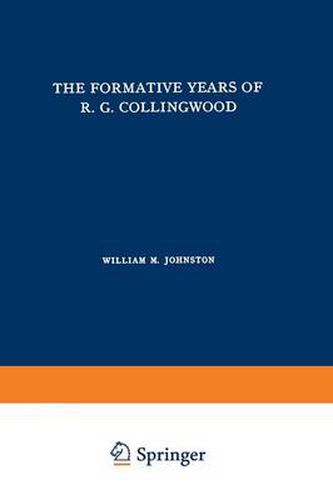Readings Newsletter
Become a Readings Member to make your shopping experience even easier.
Sign in or sign up for free!
You’re not far away from qualifying for FREE standard shipping within Australia
You’ve qualified for FREE standard shipping within Australia
The cart is loading…






This title is printed to order. This book may have been self-published. If so, we cannot guarantee the quality of the content. In the main most books will have gone through the editing process however some may not. We therefore suggest that you be aware of this before ordering this book. If in doubt check either the author or publisher’s details as we are unable to accept any returns unless they are faulty. Please contact us if you have any questions.
Collingwood and Hegel R. G. Collingwood was a lonely thinker. Begrudgingly admired by some and bludgeoned by others, he failed to train a single disciple, just as he failed to communicate to the reading public his vision of the unity of experience. This failure stands in stark contrast to the success of Georg Wilhelm Friedrich Hegel, who won many disciples to a very similar point-of-view and whose influence on subsequent thought, having been rediscovered since 1920, has not yet been adequately explored. Collingwood and Hegel share three fundamental similarities: both men held overwhelming admiration of the Greeks, both possessed uniquely broad knowledge of academic controversies of their day, and both were inalterably convinced that human experience consti tutes a single whole. If experts find Collingwood’s vision of wholeness less satisfactory than Hegel’s, much of the fault lies in the atmosphere in which Col lingwood labored. Oxford in the 1920’S and 1930’s, sceptical and specialized, was not the enthusiastic Heidelberg and Berlin of 1816 to 183I. What is important in Collingwood is not that he fell short of Hegel but that working under adverse conditions he came so elose. Indeed those unfamiliar with Hegel will find in Collingwood’s early works, especially in Speculum M entis, a useful introduction to the great German.
$9.00 standard shipping within Australia
FREE standard shipping within Australia for orders over $100.00
Express & International shipping calculated at checkout
This title is printed to order. This book may have been self-published. If so, we cannot guarantee the quality of the content. In the main most books will have gone through the editing process however some may not. We therefore suggest that you be aware of this before ordering this book. If in doubt check either the author or publisher’s details as we are unable to accept any returns unless they are faulty. Please contact us if you have any questions.
Collingwood and Hegel R. G. Collingwood was a lonely thinker. Begrudgingly admired by some and bludgeoned by others, he failed to train a single disciple, just as he failed to communicate to the reading public his vision of the unity of experience. This failure stands in stark contrast to the success of Georg Wilhelm Friedrich Hegel, who won many disciples to a very similar point-of-view and whose influence on subsequent thought, having been rediscovered since 1920, has not yet been adequately explored. Collingwood and Hegel share three fundamental similarities: both men held overwhelming admiration of the Greeks, both possessed uniquely broad knowledge of academic controversies of their day, and both were inalterably convinced that human experience consti tutes a single whole. If experts find Collingwood’s vision of wholeness less satisfactory than Hegel’s, much of the fault lies in the atmosphere in which Col lingwood labored. Oxford in the 1920’S and 1930’s, sceptical and specialized, was not the enthusiastic Heidelberg and Berlin of 1816 to 183I. What is important in Collingwood is not that he fell short of Hegel but that working under adverse conditions he came so elose. Indeed those unfamiliar with Hegel will find in Collingwood’s early works, especially in Speculum M entis, a useful introduction to the great German.